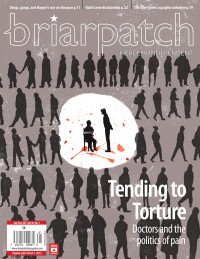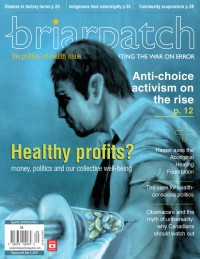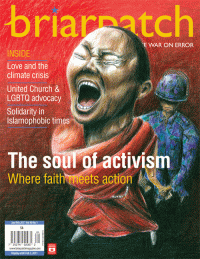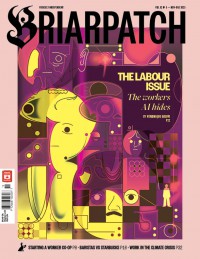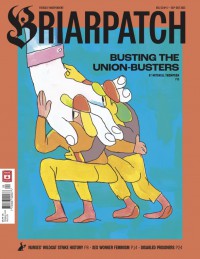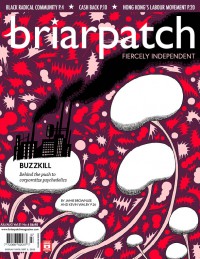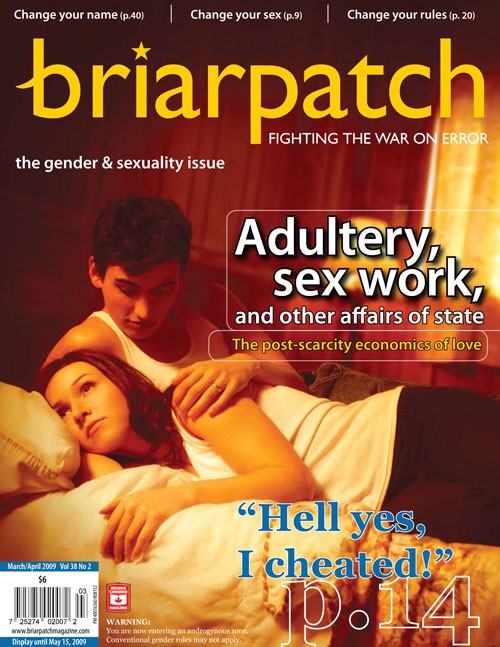
Adultery, sex work and other affairs of the state
In this, our gender & sexuality issue, Briarpatch undresses the politics of adultery, flirts with the practice of polyamory, discusses the decriminalization of sex work, weighs the cost of transexual healthcare in Canada, investigates Nepal’s human trafficking epidemic and checks out Vancouver’s queer dance scene.
-
 Magazine
MagazineLetter from the editor
This issue of Briarpatch is a temporary androgynous zone in the no-man’s land between male and female. It is addressed neither (just) to women nor (just) to men, but to anyone who is serious about putting principles of social justice into practice.
-
 Magazine
MagazinePolyamory in practice
Conversations about polyamory – the practice of having more than one intimate partner at a time – are slowly finding their way into public consciousness. Two newly published books (Open: Love, Sex, and Life in an Open Marriage and Opening Up: A Guide to Creating and Sustaining Open Relationships) reflect an increasingly popular postmodern view of love and relationships led by post-second-wave feminist and queer communities.
-
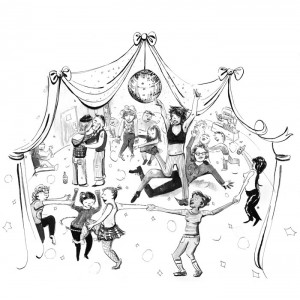 Magazine
MagazineQueering the scene
On the third Saturday of every month, a throng of self-identified queers descend on an East Vancouver community centre in search of cheap drinks, good music, and the chance to dance off the month’s drudgery in a safe and inclusive environment.
-
 Magazine
MagazineA pound of flesh
Yesterday I received a long-awaited item in the mail: an application package for admittance to the Gender Identity Clinic at the Centre for Addiction and Mental Health in Toronto. This is the golden ticket for Canadian transsexuals who are in need of medical care (including hormones, surgeries and counselling) and who can’t afford to pay for it themselves. Toronto’s Centre for Addiction and Mental Health, commonly referred to as CAMH, is the gateway to it all.
-
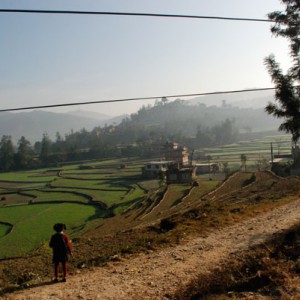 Magazine
MagazineVillages without women
The small woman moves lightly across the concrete floor. Wearing socks and sandals, she carries glasses of mud-coloured milk tea, which she sets on an ankle-high table. There are no chairs in this room, so she kneels on the floor, waiting to speak. The woman’s face is worn and crossed with lines pointing to a frown. She pulls a black shawl over her head for warmth, leaving only her damp, anxious eyes exposed. She looks old enough to be a grandmother, but guesses her age to be 26 or 27.
-
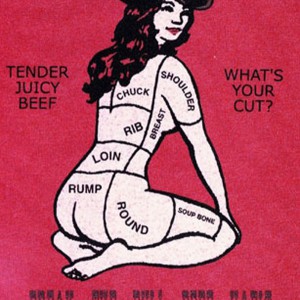 Magazine
MagazineCruising the red meat district
Carol Adams’ The Sexual Politics of Meat is an indictment of the gender politics inherent in a meat-eating culture. It’s also an indispensable resource for those who want to delve into the complex relationship between consumption, hierarchy and domination. With great clarity, Adams lays out the interconnectedness of meat eating and male dominance, of animal oppression and the oppression of women – in short, the sexual politics of meat.
-
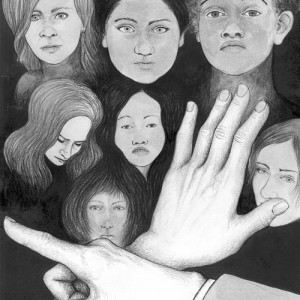 Magazine
MagazineSex work and the state
Kara Gillies is a sex worker and activist who has been advocating for sex workers’ rights and well-being for the past two decades. She co-founded both the Canadian Guild for Erotic Labour and the former Toronto Migrant Sex Workers Advocacy Group. Gillies hosted a sex worker rights radio show on CIUT 89.5 FM called The Shady Lady and was a health worker at the Hassle Free Clinic. She has been involved with Maggie’s (www.maggiestoronto.ca), a Toronto-based sex worker-run organization, for 18 years and currently coordinates its education program.

